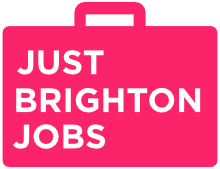A lot of focus when applying for a job is on whether you have the qualifications or the skills to do the role at hand. What many job hunters forget is that picking the right boss is also important.
In fact, it can make a big difference to your career and your future prospects.
A good boss will:
- Work to develop your skills and knowledge.
- Be there when you need them.
- Build your confidence and give you room to perform.
- Be honest with you but fair.
A bad boss, on the other hand, is likely to:
- Undervalue you and treat you poorly.
- Give you little or no training.
- Drain your confidence and make your life a misery.
5 Signs of a good boss
The trouble is that the one and only time you may get to assess whether a boss is worth working for or not is during the interview. This can be difficult to assess, especially if you’re focused on your own performance and simply trying to do your best.
Looking out for the tell tale signs of a good boss, however, can help you reach a quick decision if you’re lucky enough to land the job.
1. Do they sound authentic?
If someone appears to be to me-centric or sound like they’re spinning you a tale when you ask important questions, you have every right to be worried. Good leaders tend to be transparent, even to strangers in an interview setting.
2. Do they listen?
If someone seems to be interrupting you all the time or doesn’t appear to grasp what you are saying, it may mean they have poor listening skills. Again, great leaders are also good listeners and they have compassion too. Bad bosses posses neither attribute.
3. Do They Inspire?
Many interviewers will discuss the vision of the company you are hoping to work for. If this fails to inspire you, it might be better to look elsewhere. If the boss can’t get excited over what he is doing, how can he expect you to?
4. Are They Interested in You?
It might sound a little conceited, after all the boss has probably interviewed several people that day. But taking an interest in you and not trying to rush over the questions is a key indicator that this boss has the attributes you are looking for.
They might, for instance, talk about your personal development. They’ll certainly show empathy and understanding. These are all good indicators that you’re in the right place.
What If It’s Not The Boss?
You may not be interviewed by the boss at all but by a representative from HR or a panel made up of members of staff. The same rules apply and you should be looking just as hard at how these individuals relate to you.
If you’re not used to picking and choosing who you work for, it can be difficult to assess in the interview.
So often, we’re more interested in landing the job rather than what happens afterwards. Being more critical is, however, a good habit to get into and one which can, more often than not, stop you making bad choices.
Working for a great boss can do fantastic things for your career. We all have one or two in the past who were either great mentors, stood up for the team and made a big difference to our careers.
If you aren’t critical, you’re essentially leaving it to chance that your next boss is going to be a benefit rather than a drag on your career.

